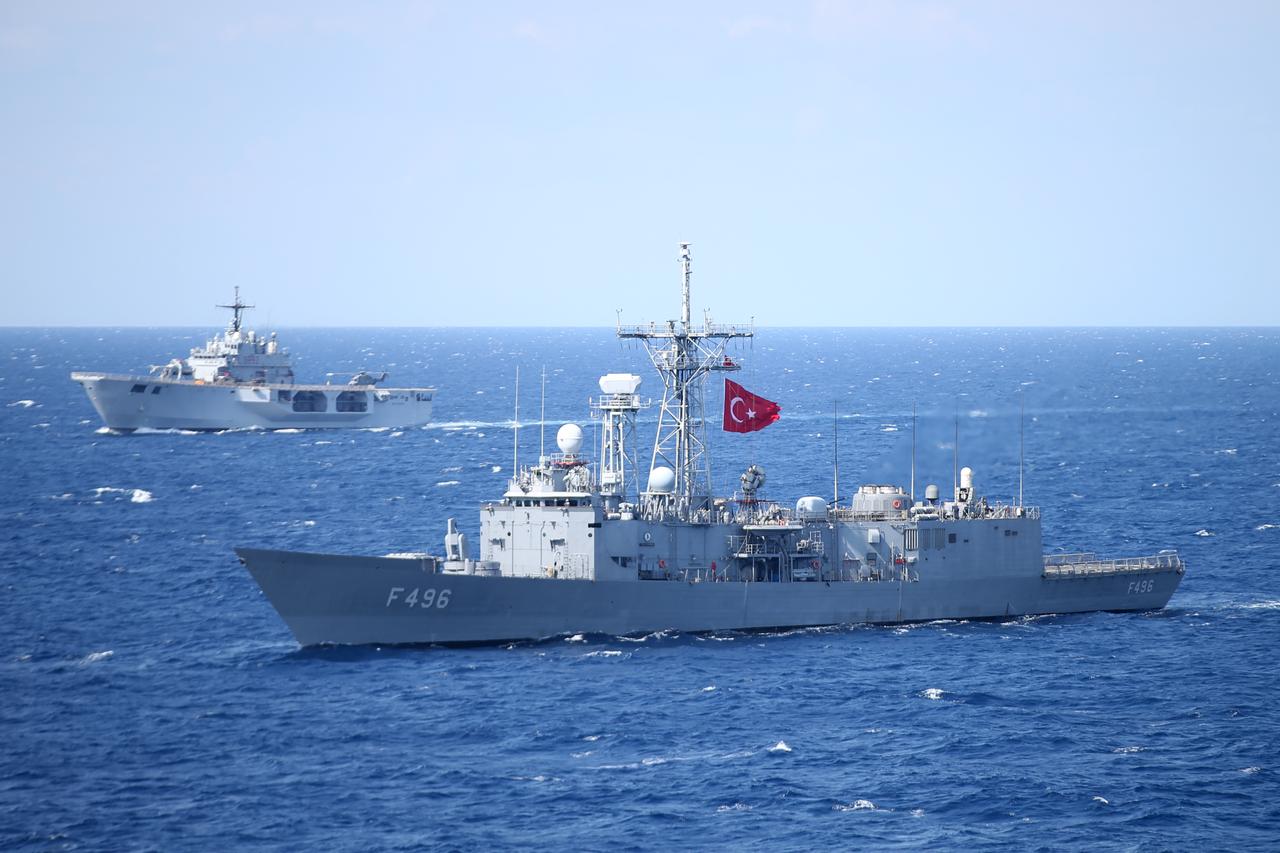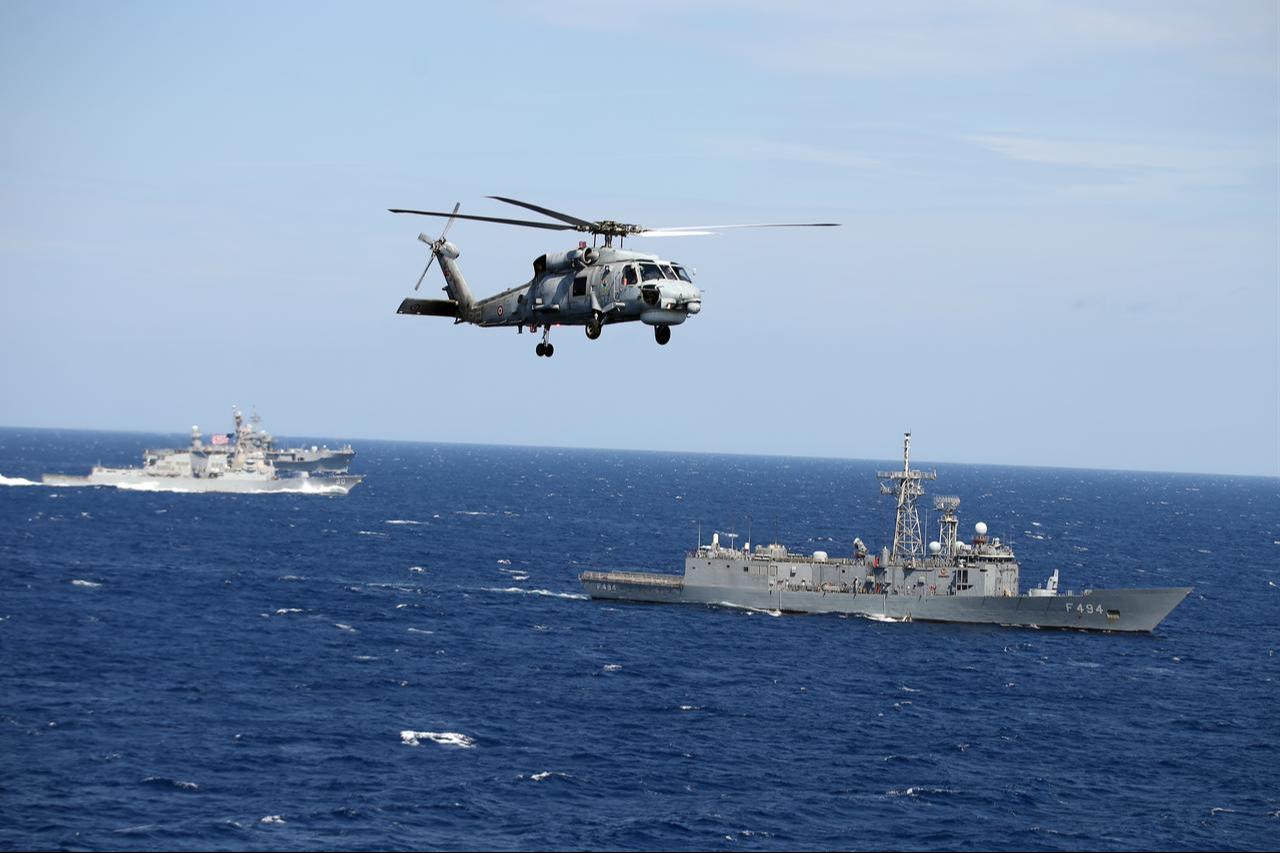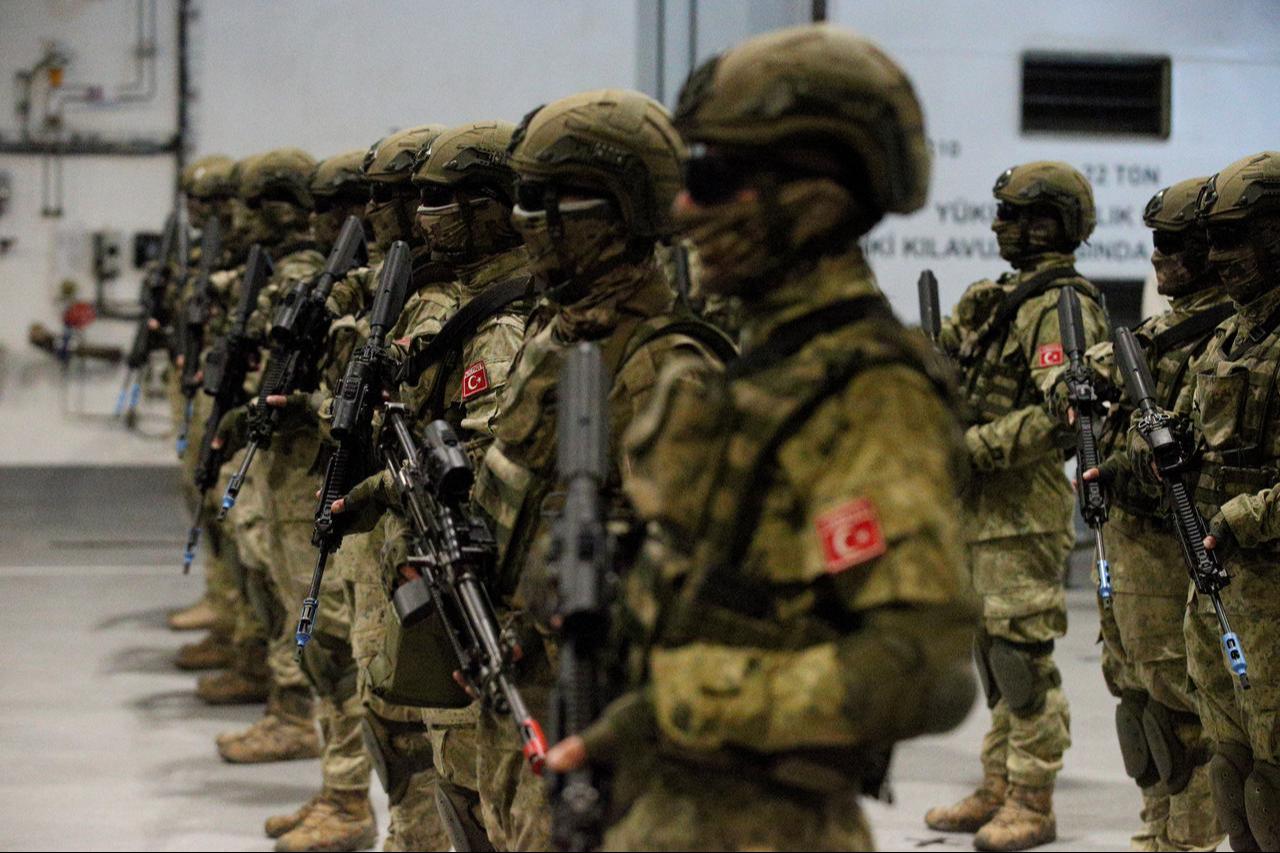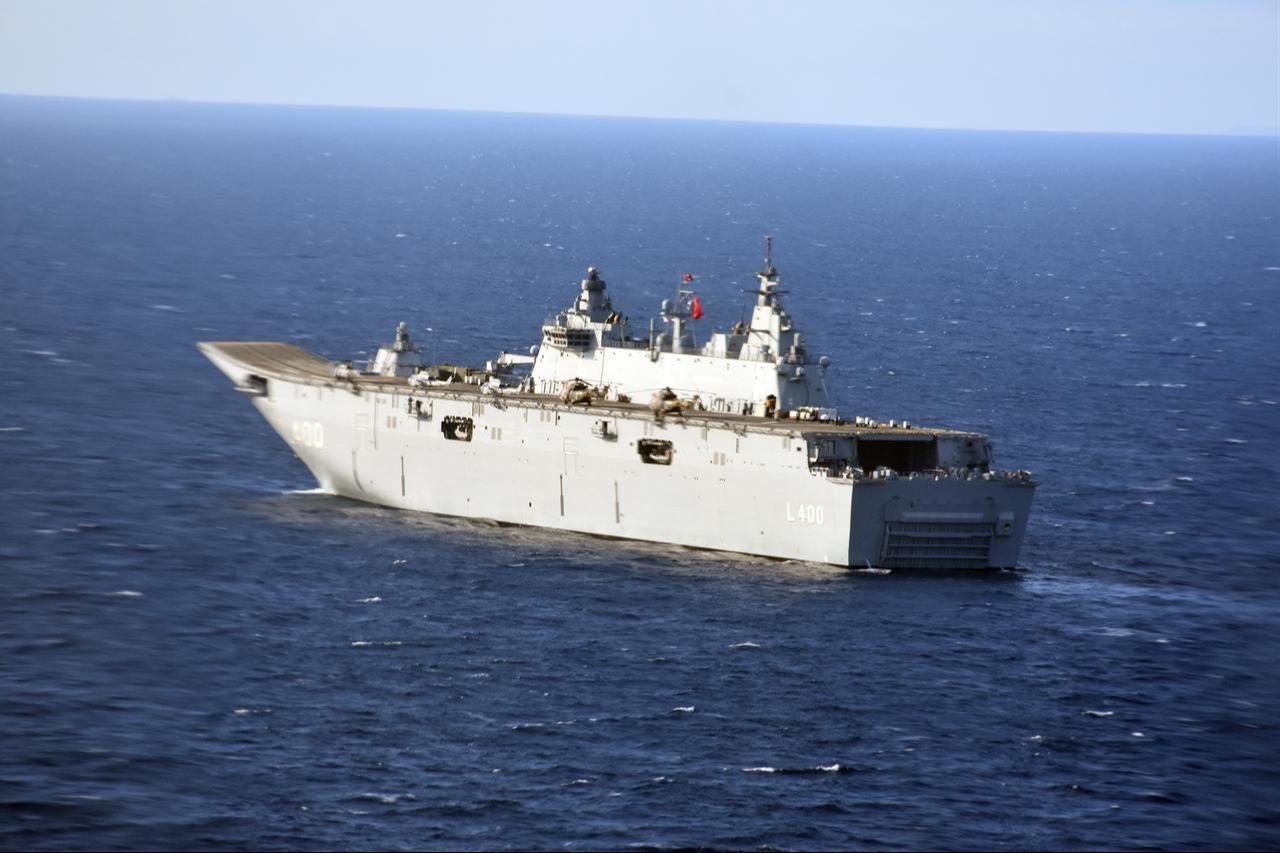
The Turkish Navy's Anadolu Task Group is participating in NATO's Neptune Strike 25.3 exercise in the Adriatic Sea off southeastern Italy, demonstrating Türkiye's amphibious capabilities alongside allied forces.
The exercise, which began Sept. 22 (Monday) and runs through Sept. 26 (Friday), includes 44 units from NATO member nations, with Türkiye, Italy and the United States leading participation.
More than 10,000 sailors, soldiers, aviators and marines from 13 allied nations are taking part in the enhanced vigilance activity.

Turkish naval forces are participating with a comprehensive task group centered on TCG Anadolu, the nation's flagship amphibious assault vessel.
The group includes TCG Gokova, TCG Gokceada, TCG I. Inonu, five helicopters, five armored amphibious assault vehicles, four landing craft, eight boats, one underwater assault team, one first-class diving team, and one amphibious marine battalion.
"Participating in NATO's enhanced vigilance activities and showcasing our nation's capabilities is extremely important for us," said Rear Admiral Mevlut Savas Bilican, commander of the Amphibious Task Group, who has led NATO's Allied Response Force Amphibious Task Force Command since July 1.

The Neptune Strike series demonstrates NATO's ability to integrate high-end maritime strike capabilities across the Mediterranean, Adriatic, North, and Baltic seas.
Led by Naval Striking and Support Forces NATO, headquartered in Oeiras, Portugal, under U.S. Vice Admiral Jeffrey T. Anderson, the exercise focuses on strengthening deterrence and ensuring freedom of navigation.
Key participating vessels include the U.S. aircraft carrier USS Gerald R. Ford, Turkish amphibious assault ship TCG Anadolu, Italian landing ship ITS San Giorgio, and U.S. command ship USS Mount Whitney.
The Gerald R. Ford Carrier Strike Group is operating in the North Sea while multinational task groups conduct joint missions in the Baltic and Mediterranean.
Training activities include light weapons firing, maritime patrol operations, amphibious rehearsals, amphibious assaults, anti-submarine warfare and mass casualty evacuation drills.
Allied forces from Denmark, Estonia, Finland, France, Germany, Italy, Lithuania, Norway, Poland, Türkiye, Sweden, the United Kingdom and the United States are conducting carrier-based air missions, amphibious landings in southern Italy and submarine patrols.

NATO's Standing Maritime Group-2 vessels TCG Barbaros and Italian frigate ITS Carlo Bergamini are providing additional support to the exercise.
The activities are part of NATO's Enhanced Vigilance Activities, designed to test interoperability across air, land and sea domains.
Neptune Strike 25.3 follows the previous iteration, Neptune Strike 25.2, which took place from July 24 to Aug. 1.
The series, originally conceived in 2020 as Project Neptune, underscores NATO's ability to integrate multinational naval and strike forces rapidly over long distances.
The exercises are defensive in nature and fully compliant with international law, according to NATO officials.
They aim to secure strategic maritime chokepoints while demonstrating the alliance's collective defense capabilities.
Turkish naval forces hosted international media aboard TCG Anadolu during the exercise's press day, when allied vessels conducted joint transit training in formation.